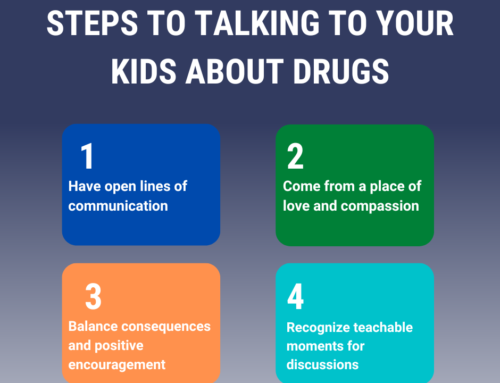Alcoholism may be a scary thing to talk about to your children because you are afraid if you give them information about why people drink, they will want to do it themselves. The truth is that you are not protecting your children by not talking about it and you do not want to miss an opportunity when your children show signs of alcoholism.
The National Institute on Alcohol Abuse and Alcoholism says that by the age of fifteen, over a third of teens have had at least one alcoholic drink which doubles by the age of eighteen. Binge drinking can also lead to injury, memory, learning difficulties, and heart disease. Instead of sitting your children down to have a big talk, just talk about alcoholism casually like if a celebrity died on the news as a result of alcoholism or if your children talk about a student who recently went to the hospital for alcoholism, speak to your children about this. Ask them what they think happened, how they feel, and why they think they were drinking. There is no age too young to talk about alcoholism and do not wait until they are a teenager as they could be thinking while a child about drinking.
Explain to your child simply about why alcohol is illegal when you are under 21 and the dangerous risks of developing a drinking problem at an early age. Role playing is also a good technique to teach your children about drinking. If you approach them about drinking, they might tell you what you want to hear. Role play scenarios first to your spouse about what to say if your child comes home drunk or if they tell you they were offered alcohol. That way, you can plan what to say. If you look too shocked, your child will be uncomfortable and might change the subject or will avoid talking about it.
Never miss a window of opportunity if your child decides to open up to you. When your child is a teenager, role play a scenario of what could happen if a friend encourages you to drink so that your child will free-think the response. You can also share your own stories of underage drinking or a friend who has to open up discussion. The important thing is to never give your children an excuse to be afraid to talk to you about alcoholism.
Located in downtown Midland, The Springboard Center’s mission is to offer programs and services to treat alcohol and drug addiction treatment using an evidence based curriculum, 12 step programs, diet, nutrition, exercise, emotional, mental and spiritual development for a long recovery. For more information, please call us at 432-620-0255 as we are open 24 hours a day, 7 days a week.




